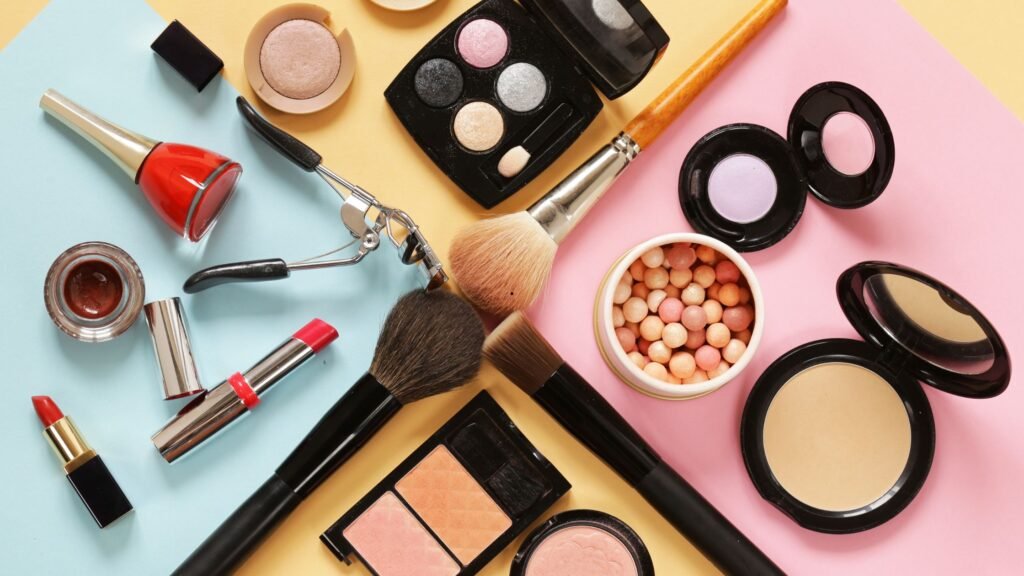Beauty standards have always fascinated and troubled us. They shape how we see ourselves and how society sees us. Thanks to social media, the pressure to meet these standards is more intense today than ever. Platforms like Instagram flood us with images of “perfect” bodies, creating unrealistic expectations.
Studies show that these unattainable ideals are causing serious harm. Young people, in particular, are suffering from increased body dissatisfaction and anxiety. This “Instagram effect” is not just about wanting to look good; it’s leading to real mental health issues. Pursuing these impossible standards is taking a heavy toll on many lives.

Unrealistic Beauty Standards of Today
Here are some key statistics that highlight the prevalence and impact of unrealistic beauty standards in society:
90% of women feel dissatisfied with their appearance at some point.
Over 70% of women feel pressured by the media to conform to beauty standards.
80% of teenage girls compare themselves to images they see on social media.
60% of men are also impacted by beauty standards, feeling pressure to have muscular bodies.
91% of women in one survey regulated their eating habits to conform to beauty standards.
Only 2% of women describe themselves as beautiful.
17% of people report that beauty standards affect their mental health negatively.
50% of women use beauty or appearance-altering products over five times weekly.
The global beauty industry is worth an estimated $532 billion.
Women in the U.S. spend an average of $3,756 per year on their appearance.
The average woman spends about $225,000 on beauty products in her lifetime.
77% of people believe there’s too much emphasis on outer beauty.
Over 6 in 10 women feel negatively about their bodies most of the time.
45.5% of teens report considering cosmetic surgery, and 43.7% of women over 60 report considering it.
15% of young women have substantially disordered eating attitudes and behaviors.
20 million women and 10 million men suffer from a clinically significant eating disorder at some time in their lives.
Unrealistic beauty standards cost the U.S. economy around $800 billion annually, with $300 billion from body dissatisfaction and $500 billion from appearance-based discrimination.
These statistics paint a troubling picture of the widespread negative impact of unrealistic beauty standards perpetuated by media, social media, and society. From high rates of body dissatisfaction and disordered eating to the economic costs, the data shows beauty ideals are causing real harm.

The Instagram Effect
The “Instagram Effect” refers to the significant influence that Instagram, a popular social media platform, has on users’ perceptions of beauty, self-esteem, and body image. This effect is primarily driven by the platform’s visual nature, where users frequently encounter highly curated and often digitally altered images.
Instagram has significantly influenced beauty standards, especially among young people. Its visual focus and emphasis on curated, filtered images have spread unrealistic beauty ideals, overshadowing the truth that individuals are altogether beautiful, carrying inherent value and worth beyond social media portrayals.
Impact on Young Women
Instagram influencers shape the beauty standards of 45% of young women. These influencers post carefully staged and edited photos displaying flawless skin, hair, and bodies. Young women often feel inadequate and pressured to meet these narrow beauty standards.
Mental Health Consequences
Studies show that more Instagram use links to poorer mental health, including higher rates of depression, anxiety, and body image issues. This is mainly because users compare their appearance to the idealized images they see on the platform.
Social Comparison and Self-Esteem
Spending more time on Instagram often leads to lower body satisfaction and self-esteem. Features like likes, comments, and follower counts worsen the issue by providing measurable indicators of social approval.
Vulnerability of Young Women
Young women are particularly affected by Instagram’s impact on body image. Constantly seeing peers’ and influencers’ curated, often digitally altered images leads to unrealistic expectations and a distorted sense of what is normal or attainable.

Philippine Beauty Ideals
Various cultural, historical, and global influences have shaped Philippine beauty standards. The country’s colonial past, especially during the Spanish and American periods, introduced Western beauty ideals. These ideals prioritized light skin, tall stature, and pointed noses as markers of attractiveness.
Colonial and Media Influences
Western beauty standards were reinforced by media that promoted skin-lightening products and featured celebrities with Caucasian-like features. This created a long-standing preference for lighter skin and Western facial features.
Globalization and Social Media
With globalization and widespread internet access, Filipinos have been increasingly exposed to Western beauty ideals. This has led to a desire for features like sharp noses, thinner lips, and smaller jawlines.
Korean Pop Culture Influence
The rise of Korean pop culture, or K-pop, has significantly influenced Filipino beauty standards. There is now a preference for slim physiques, clear skin, delicate facial structures, and fashion inspired by K-pop stars.
In fact, one’s identity is affected by looking up to these so-called entertainment idols.
Shift Towards Diversity
Recently, there has been a shift towards more diverse beauty standards in the Philippines. There is a growing appreciation for features like fuller figures, morena (brown) skin tones, and natural beauty. This change is driven by the democratization of beauty through social media, which allows for a broader range of voices and representations. There is also increasing awareness of the harmful effects of narrow beauty ideals on mental health and self-esteem. This shift aligns with the belief that God created humanity with inherent beauty and value.
How many times did the Bible speak about beauty?
The Bible mentions beauty and related concepts numerous times throughout its pages. While an exact count is difficult due to variations in translations and interpretations, here are some key statistics and insights:
The word “beauty” appears around 49 times in the King James Version of the Bible.
Related words like “beautiful” (around 81 times), “beautify” (3 times), and “beauties” (1 time) also appear.
The Hebrew Bible (Old Testament) contains several words that convey the idea of beauty, such as יָפֶה (yapheh), meaning “fair” or “beautiful,” and הוֹד (hod), meaning “splendor,” “majesty,” or “beauty.”
In the Greek New Testament, the word κάλλος (kallos), meaning “beauty,” and its related adjective καλός (kalos), meaning “good,” “excellent,” or “beautiful,” are used.
The Bible attributes beauty to various people, places, and things, including women like Sarah, Rachel, and Esther, cities like Jerusalem and Zion, and even God’s character and dwelling place.
Biblical References to Beauty and Appearance
The Bible frequently discusses beauty and physical appearance but always emphasizes a more profound truth. Acknowledging physical beauty underscores that true beauty comes from within.
This inner beauty stems from the heart, spiritual qualities, and relationship with God. It’s a profound reminder that a person’s essence isn’t found in their outward appearance but in their character and the virtues they cultivate. This perspective is crucial in understanding the nature of authentic beauty and the values that truly matter. God prepared each individual with intrinsic beauty and worth, as emphasized in the Bible.
Outward Appearance in Scripture
The Bible contains several verses that address physical appearance, often emphasizing that God looks at the heart and character of a person rather than their outward appearance:
1 Samuel 16:7 – “But the Lord said to Samuel, ‘Do not look on his appearance or the height of his stature, because I have rejected him. For the Lord sees not as man sees: man looks on the outward appearance, but the Lord looks on the heart.'”
Isaiah 53:2 – “He had no beauty or majesty to attract us to him, nothing in his appearance that we should desire him.” This verse prophetically describes the humble and unimpressive physical appearance of Jesus.
Matthew 23:27 – “Woe to you, scribes and Pharisees, hypocrites! For you are like whitewashed tombs, which outwardly appear beautiful, but within are full of dead people’s bones and all uncleanness.” Jesus rebukes the religious leaders for their focus on external appearances while neglecting the condition of their hearts.
2 Corinthians 5:12 – “We are not commending ourselves to you again but giving you cause to boast about us, so that you may be able to answer those who boast about outward appearance and not about what is in the heart.” Paul emphasizes to the Corinthians that what matters is the inward condition of the heart, not outward appearances.
1 Peter 3:3-4 – “Do not let your adorning be external—the braiding of hair and the putting on of gold jewelry, or the clothing you wear— but let your adorning be the hidden person of the heart with the imperishable beauty of a gentle and quiet spirit, which in God’s sight is very precious.” Peter instructs women to focus on cultivating inner beauty rather than relying on external adornments.
Psalm 139:14: “I praise you because I am fearfully and wonderfully made; your works are wonderful, I know that full well. “We are reminded that we are God’s wonderful creation and should cherish that he has beautifully created us.
True beauty and worth are found in Christ Jesus rather than physical appearance.

The Vanity of Beauty in the Bible
We are wired to appreciate beauty—God created nature in splendid beauty. Yet, He also left us warnings about the vanity of beauty. It’s a bit contradictory at first glance. Why would the Creator fill the world with beauty and then caution us about it? The Bible addresses this tension by emphasizing that physical attractiveness is temporary and superficial.
1 Peter 1:24 – “For ‘All flesh is like grass and all its glory like the flower of grass. The grass withers and the flower falls.'”Quoting from Isaiah 40, Peter reiterates the idea that human beauty and glory are temporary and fading like grass and flowers.
True Beauty and Inner Self
In 1 Peter 3:3-4, we find a profound reminder of where true beauty lies. “Your beauty should not come from outward adornment, such as braided hair, gold jewelry, and fine clothes. Instead, it should be that of your inner self, the unfading beauty of a gentle and quiet spirit, which is of great worth in God’s sight.”
This passage challenges our modern preoccupation with external appearances. The message is clear: natural beauty is not in the superficial but in the essence of our character. The purity and simplicity of a gentle spirit hold far greater value than any adornment we can wear. True beauty is also reflected in one’s devotion to and worship of God.
Natural Beauty in the Teachings of Jesus
Jesus’ teachings emphasize this natural beauty. He calls us to embrace the simplicity and purity of our inner selves, which reflect the divine character. His religion is one of elevated purity and natural refinement, devoid of the artificial and false.
The Danger of Superficial Pride
In our pursuit of beauty, we must heed the warnings against the pride of life. Jesus pointed to the lilies of the field, noting their inherent beauty, untouched by human hands. We should aspire to this natural grace rather than the transient allure of fashion and ornamentation.
Matthew 6:28-29 – “And why do you worry about clothes? See how the flowers of the field grow. They do not labor or spin. Yet I tell you that not even Solomon in all his splendor was dressed like one of these.”
The tendency to dress according to fleeting trends, adorned with lace, gold, and other embellishments for display, undermines our faith’s authenticity. Simple, plain, and unpretentious attire reflects our values and serves as a testament to the truth we profess. In this simplicity, we let our light shine, showing that we value eternal things far above the temporary pleasures of this world.
1 Timothy 2:9 – “I also want the women to dress modestly, with decency and propriety, adorning themselves, not with elaborate hairstyles or gold or pearls or expensive clothes.”
Cultivating Inner Adornment
This is our golden opportunity to cultivate pure and holy characters, focusing on the inward adornment rather than the external. The Creator, who fashioned all the beauty we see, values the ornament of a meek and quiet spirit above all else. Shall we not then strive earnestly to attain this inner beauty that God holds in such high esteem?
Proverbs 31:30 – “Charm is deceitful, and beauty is vain, but a woman who fears the Lord is to be praised.” This well-known verse contrasts physical beauty’s temporary and deceptive nature with the enduring value of a woman who reveres and follows God.
Enhancing True Character
The inward adorning of humility and a spirit in harmony with the divine does not diminish our dignity or make us less attractive. On the contrary, it enhances our true character, making us more lovely in the sight of God and others.
Ezekiel 28:17 – “Your heart was proud because of your beauty; you corrupted your wisdom for the sake of your splendor. I cast you to the ground; I exposed you before kings to feast their eyes on you.” This passage, which speaks metaphorically of the King of Tyre, shows how pride in one’s beauty and splendor can lead to downfall.
Galatians 5:22-23 – “But the fruit of the Spirit is love, joy, peace, forbearance, kindness, goodness, faithfulness, gentleness and self-control. Against such things, there is no law.”
The Divine Artistry in Creation
Every aspect of God’s creation speaks to us, magnifying His power and exalting His wisdom. The charms of nature shape our tastes, drawing our appreciation away from human craftsmanship to divine artistry. In recognizing the precious evidence of God’s love in the world around us, we mold our characters by His holy will.
Does that mean cosmetics, accessories, and other material things are bad for a Christian?
Some might argue that following the Bible means abandoning cosmetics, clothing, apparel, accessories, and other beautification practices altogether. However, this is not necessarily the case. The Bible emphasizes inner beauty, prioritizing qualities like kindness, humility, and righteousness. This focus doesn’t mean rejecting all forms of physical beautification; instead, it encourages us to value inner virtues above outward appearances.
A balanced approach is crucial. Using these practices for self-care and personal expression is acceptable, provided they don’t become obsessions or overshadow the importance of inner qualities. Historical and cultural contexts, including biblical times, show that adornment and grooming were standard practices. The critical issue is ensuring these do not lead to vanity or distract from more meaningful values.
These forms of self-expression and creativity can enhance self-confidence without becoming the sole focus. The Bible’s call to respect our bodies as temples of God supports taking care of our appearance respectfully and balanced.
It means maintaining perspective and ensuring these practices complement rather than dominate our focus on inner beauty and virtuous living.
Why choose Biblical Beauty standards?
When people argue that modern beauty standards are just a part of societal progress, it’s essential to understand why looking to the Bible for beauty standards is valuable.
The Bible focuses on inner values. It emphasizes qualities like kindness, humility, and righteousness over physical appearance. This shift from valuing looks to valuing character helps people appreciate themselves for who they are, not just how they look.
Biblical principles help resist societal pressure. Modern media often promotes harmful and unrealistic beauty ideals. By adhering to biblical standards, individuals can protect their mental and emotional health from these negative influences.
Biblical beauty standards are timeless. Unlike society’s constantly changing trends, biblical principles remain consistent and enduring. They offer a stable, unchanging perspective on what it means to be truly beautiful.
The Bible promotes a holistic view of beauty. It includes spiritual and moral dimensions, encouraging a balanced and integrated sense of self. This is far more fulfilling than a narrow focus on physical appearance alone.
Finally, understanding biblical beauty standards provides cultural and historical insight. It helps us see how beauty ideals have evolved and guide us in thinking more deeply about today’s issues.
So, while modern beauty standards might seem like progress, the Bible offers a more meaningful and stable understanding of beauty that goes beyond mere physical.


